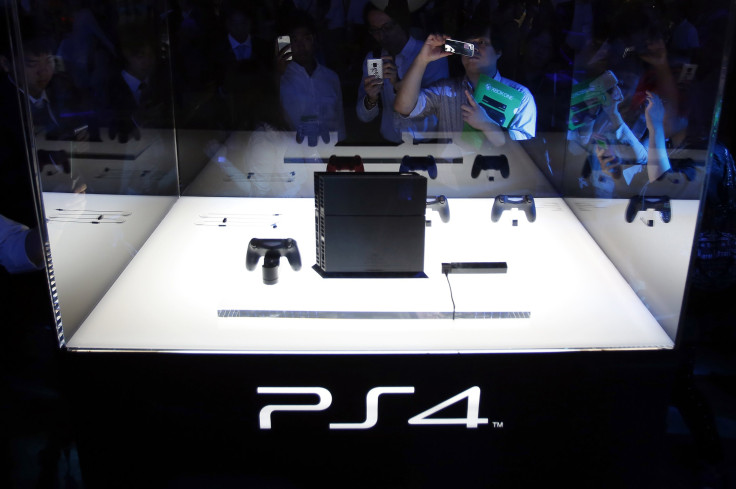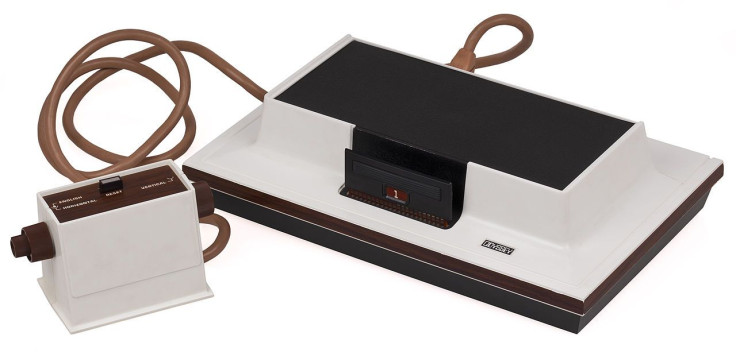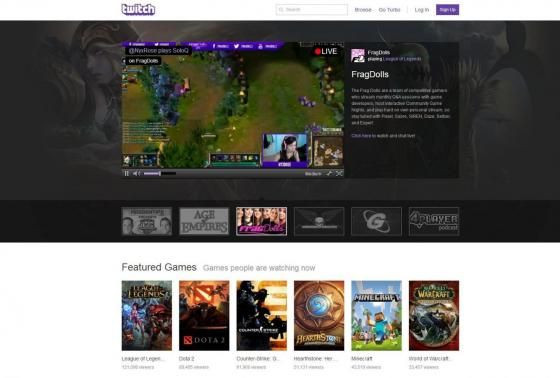Streaming Is Changing How We Watch TV And Hear Music: Next Up For Disruption Is Gaming

A large percentage of dedicated video gamers couldn't bear to part with their consoles. Sony's PlayStation 4 moved 20.2 million units as of March this year, and Microsoft shipped 10 million units as of January. Both devices launched in November of 2013 and are the top-selling platforms on the market.
But consoles may play a lesser role going forward as hardware makers, game developers and software companies explore various ways to stream games directly to a smart device. It's a trend that could disrupt the gaming market the way streaming is disrupting television and taking a bite out of cable TV.
Today, you can stream movies and television shows straight to your living room via your video game console, no disc necessary, and Sony and Microsoft continue to release updates that only expand on the console's abilities. Microsoft has also announced that Windows 10 will accommodate games streamed directly from the Xbox One to a PC. Meanwhile, Sony regularly releases updates for its eighth-generation PS4, such as “Yukimura,” which will launch on Thursday. The update will add suspend/resume abilities in games, Facebook integration and more.
But does that ensure that consoles will be around forever? What if users will one day be able to reap all the benefits of owning consoles without actually owning them?

“Leaving consoles behind is really a combination of player-social, consumer-behavioral and infrastructure changes,” Lindsay Grace, award-winning game designer, researcher and professor of New Media Arts at American University told International Business Times. “Every major shift in consoles has happened because one or not all of these factors changed. The re-emergence of PC gaming had much to do with what was available on PC that was not available or playable on consoles.”
Wanted: A Better Icebox
Grace argues that consoles won’t become obsolete until they’re replaced by something better.
“I use the analogy of the Xbox going the way of the icebox. Iceboxes are rare in the developed world for a host of reasons, many of which have to do with infrastructure and consumer preference."
Still, there are a number of players stepping up to “replace the icebox.”
Nvidia, a global technology company based in Santa Clara, California, is known for making graphics processing units, currently allows users to stream about 50 Windows PC games via its GRID technology through a gaming super computer in the cloud.
"The premise behind great gaming is just like Netflix for games. Today, most gamers download their games, which can take two to three hours," Phil Eisler, general manager of GRID Cloud Computing told International Business Times. "With our game streaming service, you can play in seconds. We load all the games up for you on our super computers in the cloud and you can pick a game from the menu ... there's about 50 games you can choose and we add to it every week."
Eisler predicts that in about a year, there will be about 100 games available in a convenient subscription pack, and 100 games that will be available for purchase separately. "We're basically providing your game console using cloud data centers...We can also update it for you every year ... it never gets dated or stale. We think over time, more and more users will gravitate toward that."
Nvidia hasn't announced the price of the subscription yet, but it's currently free if you purchase an Nvidia Shield device. The Santa Clara-based company will launch its Nvidia shield console for $199 in May, the only way to enjoy GRID on televisions.
Steam, an online digital distribution, multiplayer and social networking platform developed by Valve, offered more than 4,500 games as of February this year. Steam has more than 125 million active users. Steam was originally developed for Microsoft Windows, but versions for OS X, Linux and PlayStation 3 in a limited capacity are also available.

Then there's Twitch, a free-to-use live streaming video platform owned by Amazon that pulls in an average of 43 million viewers per month. Twitch is known for its loyal fans and community, and has a massive user base that consists of mostly males aged 18-34. Twitch is often used for playthroughs and e-sports competitions and events. Twitch also has a partners program, which allows some well-known streamers to make money from pulling in a large audience.
Constantly Experimenting
“We are constantly iterating, experimenting, and pushing forward with new product initiatives intended to make the platform even more appealing to gamers everywhere,” Matthew DiPietro, vice president of marketing at Twitch, told IBTimes.
Greg Trefry, who serves as a video game professor at New York University and is co-founder of Gigantic Mechanic, a Brooklyn-based developer studio, believes that we won’t be seeing the demise of consoles anytime soon, but that they may not be considered “consoles” forever.
“I think you'll see consoles continue to transform into a home media device that drives the entire living room,” Trefry told IBTimes. “They will play movies and play games, they may even control the lighting and the temperature. They may get smaller, they may be USB sticks or Bluetooth controller or a big black box ... Devices that drive your entertainment options will exist, we just may not call them consoles and they may not look like big bricks on your bookshelf.”
The Magnavox Odyssey was the world’s first commercial home video game system, a primitive-looking, boxy machine that was priced at $99 and was compatible with only 27 games. The Odyssey was able to run old-school games, but not much else. Forty years later, the landscape of home devices is completely different.
Lindsay Grace says there may be no immediate threat to console producers, but that could change. “If I were a console manufacture, I wouldn’t be defensive yet, but I would keep one eye on the trending future,” he said.
We reached out to Microsoft and Sony. Microsoft declined to comment, and we did not hear back from Sony.
© Copyright IBTimes 2024. All rights reserved.






















